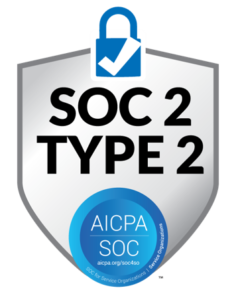Executive summary:
- Unique benefits across software, integration and engineering support
- Long-term LMS training and technical support
- Bringing together data from across systems to enable powerful insights
As you research solutions, you will find that labor management systems (LMS) come in several varieties. Some are more tightly integrated with other warehouse operational systems. Alternately, other vendors only provide the core LMS software, leaving warehouse operators to engage consultants or build in-house tech teams for installation, integration and support. While that approach can work, the best bet for most operators is a full-service LMS from a company that provides hands-on support before, during and long after the initial installation. Here are the key reasons why and what to look for when you’re evaluating an LMS partner.
[CHOOSING THE RIGHT LABOR MANAGEMENT PARTNER FOR YOUR BUSINESS]
The advantages of a full-service team above and beyond SaaS
Full-service LMS providers not only deliver their software as a service (SaaS), they offer the integration and labor engineering support required for operators to manage their workforce with peak efficiency.
In addition to reducing or eliminating the need to hire consultants and build internal staff for engineering work, going with a full-service LMS provider means the people most familiar with the software install, configure and integrate it. That also gives warehouse operators a single touchpoint when troubleshooting.
It’s hard to overstate the importance of smart system integration to a successful LMS implementation. That’s why top-tier providers field dedicated teams of integrators who use middleware to layer multiple data systems together and create dashboards that enable warehouse operators to unlock the power of their data in powerful new ways.
These dashboards integrate WMS, time and attendance, payroll and other data sets into a single operational touchpoint that highlights information such as how much lost time there is between when employees punch in and when they start working, or the impact of overtime by department. Such insights can be turned into automatic reports that are distributed to every supervisor for action.
Offering engineering support as part of the package enables full-service LMS providers to field engineers with deep knowledge of the software. They understand predetermined time study measures and how to apply them—and have deep experience implementing high-quality engineered labor standards that will pass union audits or other scrutiny.
A long-term training and support partner
A typical LMS setup has a degree of complexity that makes it difficult to rely on instruction manuals alone. Even with engineering consulting support, warehouse operators that shoulder the bulk of LMS setup and integration can face additional roadblocks here. With a full-service LMS, the best vendors provide operators with both initial training and ongoing support.
That ongoing support and maintenance piece should be a key factor in evaluating full-service LMS vendors. Top providers help ensure that warehouse operators leverage the solution to get the most bang for their buck on everything from increasing worker productivity and efficiency via engineered labor standards to reducing overtime and plotting the most efficient travel paths through the facility.
High-touch customer service combined with remote monitoring
The best full-service LMS providers offer regular meetings with customer support managers to troubleshoot issues, address ongoing training needs and share new functionality. These meetings should be more than a forum for operators to put in enhancement requests and raise concerns. Providers will use these meetings to actively work with clients to solve emerging business problems, address strategy changes that ripple through the operation, and ensure that the LMS functionality evolves along with the warehouse operator.
Also, look for providers with remote monitoring capability that can help identify usage trends and use maintenance metrics.
A track record of regular upgrades
The most dynamic full-service LMS providers release regular updates to improve existing functionality and add new features to address client needs. Part of this focus on continuous improvement should also include regularly meeting with clients to understand where their business is heading over the next quarter, the next year and beyond.
This is where the partnership with a full-service provider can really pay off. By actively seeking advance notice of planned upgrades or other changes to the client’s tech stack, the LMS vendor can plan and execute seamless integration updates.
Deciding between the short list: Avoid these red and caution flags with final contenders
When evaluating full-service LMS providers, there are two factors to consider that can help operators break the tie between seemingly similar solutions. First, look for a vendor who is eager to offer customer references. If they can’t or won’t provide references—or seem to suffer excessive customer churn—that’s a big red flag.
Second, while it is possible to launch a solid full-service LMS without decades of experience behind the product, it’s a caution flag when vendors are in start-up mode. Even with thorough due diligence, warehouse operators who go with a new entrant are taking a bigger risk that the vendor may not survive long-term, leaving orphaned customers in their wake.
The best scenario is to find a full-service LMS provider with a wealth of positive customer references and long experience in delivering a top-tier product, especially when they have solid ROI strategies and change-management programs that help clients quickly see value from the system. As with any vendor, a full-service LMS provider with a track record of proven success can give customers peace of mind along with significant labor-cost savings and operational efficiencies.
Have questions? Book a ProTrack demo to learn more about what a full-service LMS can offer your business.
Author: Richard Knight, TZA Director of Services
Related TZA Resources:


